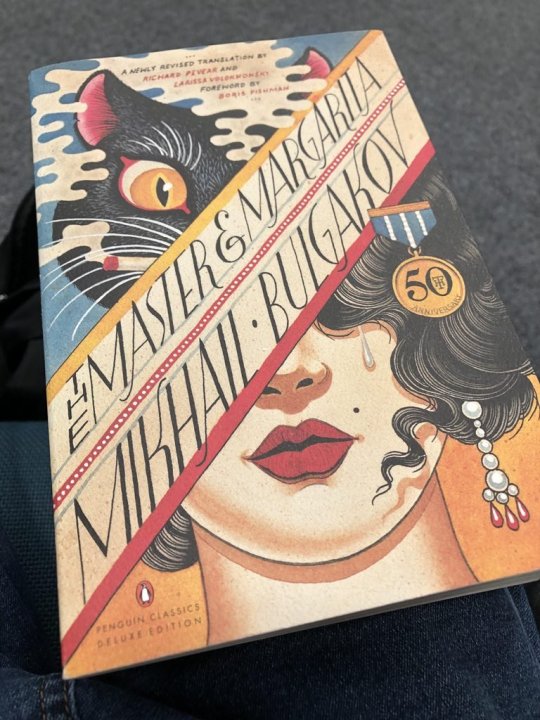#LiteraryDissidence
Explore tagged Tumblr posts
Text

Many Russian classics delve into the profound depths of the human soul, often portraying the horrors of the Gulag. However, "The Master and Margarita" stands as a refreshing exception, undoubtedly the most uplifting among Russian classics—a blend of humor, profundity, and a must-read experience. Despite its acknowledgment as a 20th-century masterpiece and a pinnacle of magical realism, it remains surprisingly unknown to many well-read individuals.
Written in the 1930s but published in the 1960s, the novel unfolds as a surreal masterpiece. The devil, Woland, and his bizarre entourage disrupt Moscow's literary elite, initiating a series of fantastical events. The story intertwines the narratives of Berlioz's tragic fate and the experiences of Ivan Bezdomny, a poet ending up in a lunatic asylum. The Master, a writer imprisoned for his novel about Jesus Christ and Pontius Pilate, becomes pivotal in connecting the narrative threads.
As Woland orchestrates magic shows and Margarita, the Master's mistress, embraces witchcraft, the novel unfolds with delightful absurdity. The narrative navigates Good Friday, Christ's crucifixion, and Margarita's supernatural flights across Moscow and the USSR. The novel's wit, satire, and comedic elements provide a unique lens into the dark societal critique woven throughout.
Despite its complexity and quasi-religious themes, "The Master and Margarita" emanates a lightness of tone. Bulgakov's satire targets the literati, offering a humorous reckoning for those who dismissed the Master's work. The novel's optimistic core suggests that finding humor in adversity is paramount. Bulgakov, living through tumultuous times, captured the essence of a cosmic joke where life's absurdity is illuminated through laughter.
Bulgakov's life mirrored the challenges faced by his characters. Writing clandestinely during a period of political repression, he confronted constant threats, health issues, and the fear of never completing his masterpiece. "The Master and Margarita" remained unpublished during his lifetime, its significance emerging only after the oppressive Soviet regime.
The novel symbolizes dissidence, serving as a potent catalyst for liberation from the hypnotic order of Soviet life. Bulgakov's work invites contemplation on good and evil, light and darkness, urging readers to navigate moral choices amidst chaos. Ultimately, "The Master and Margarita" stands as a testament to the power of literature, providing solace, humor, and a unique perspective on the human condition. by Kaja Popko
#MasterAndMargarita#Bulgakov#SurrealMasterpiece#Woland#LiteraryClassic#MagicalRealism#RussianLiterature#HumorInAdversity#SatiricalNovel#DarkComedy#MargaritasFlight#LiteraryCritique#WitAndSatire#SovietEraNovel#LiteraryDissidence#BulgakovsLegacy#LiteraryHumor#MustReadNovel#MasterAndMargaritaQuotes#OptimismInChaos
4 notes
·
View notes